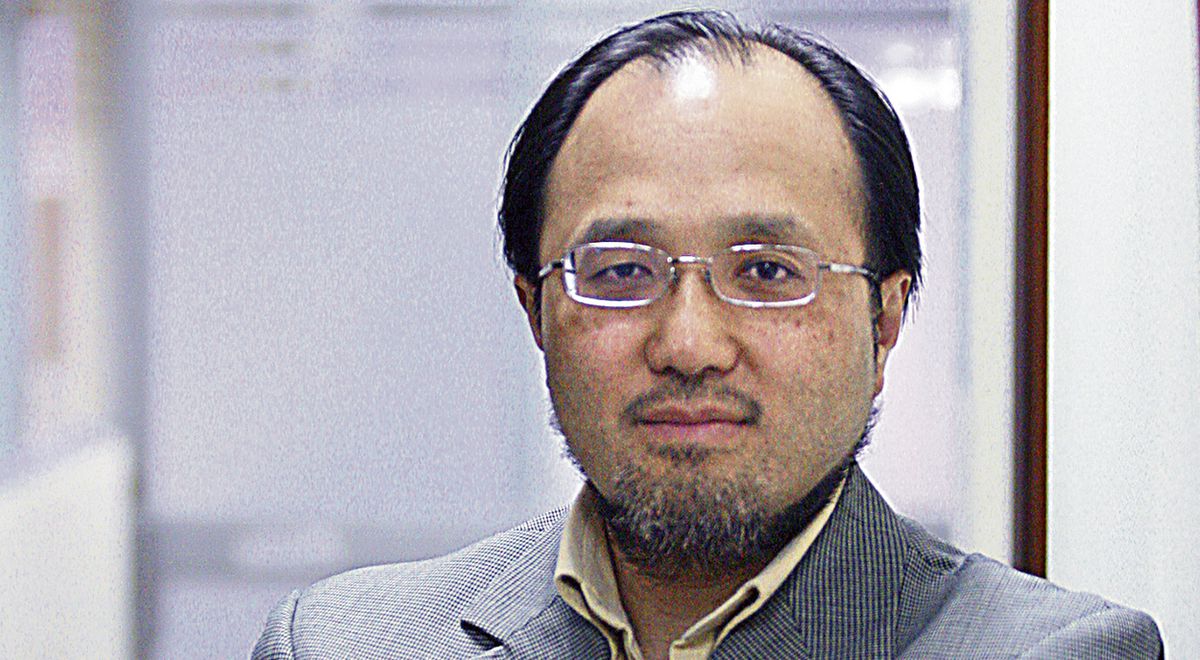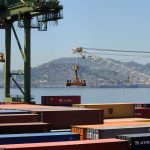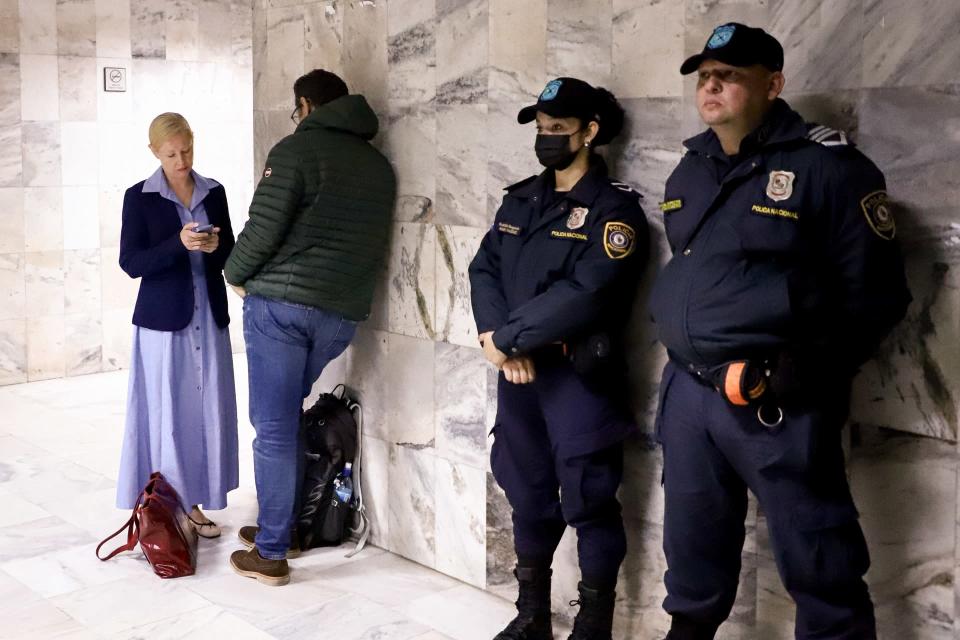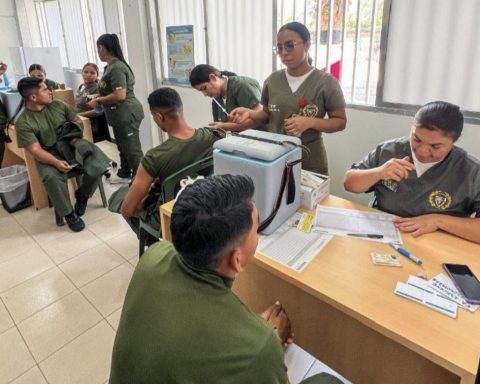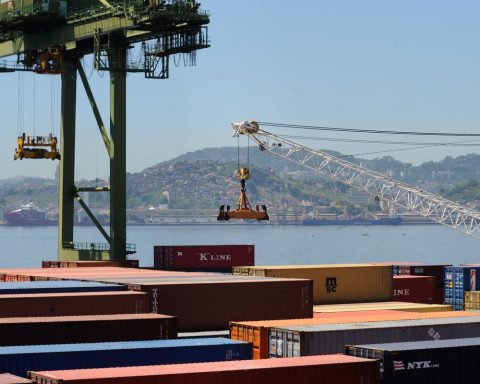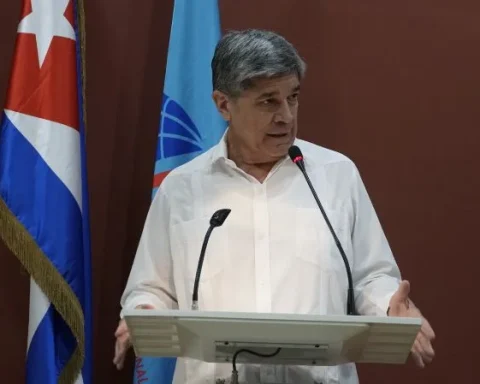You have stated that attention tends to focus on the clashes between the Executive and Legislative powers, but that there are other sectors in conflict, not organically represented, but with influence. Who are you referring to?
There is a background to what is happening in the parliamentary arena where there is a very conservative right-wing sector, which has been organizing and radicalizing, which feels that it has lost positions and is making a concerted effort to regain its influence. They have had an important achievement with the election of the members of the Constitutional Court, which has been possible because the right-wing conservative group has been joined by an extreme left-wing group that is also very conservative in terms of certain values. On the other side, there is a more liberal group, from the center, which has opted for institutional reforms that have allowed this kind of alliance between a liberal sector on the right and an anti-Fujimorist sector on the left. That allowed things like university reform to move forward.
Does that alliance between the conservative right and left displace the more liberal one?
Yes. What happened in Peru until 2016 was that, spontaneously, there was a kind of confluence between this liberal right-wing and pro-market sector that also thought that some reforms were important and that coincided with an anti-Fujimorist left. There was a stronger political center where the most radical left and a right linked to the hardest Fujimorism were left out. In recent times, the center has weakened and these extremes have been strengthened, which, strangely, converge for some things.
Do you see the danger of a democratic breakdown?
I think so. Not an open, conventional break, like a military coup, but a stretching of the constitutional rules to the point of making them unrecognizable, to give a cloak of legality to what could be a break. For example, the declaration of the presidential vacancy due to moral incapacity. That is a stretching of the norm to justify a political decision. We live in a very peculiar entrapment. It is a dilemma: the institutions must be defended, but it is true that the government has placed itself in a very difficult situation to defend and support, because there are very serious accusations and there is no reaction from the presidency…
Perhaps you are interested in keeping things that way. There are those who think that there is a de facto coexistence between the two powers: they say everything, but they do not go beyond the rhetorical.
Yes. And there is a wide area of agreements in more conservative and populist terms. The left has abandoned some institutionalist banners that it previously defended and the right has become populist. It is a paradox in which Fujimorism, which was the defender of the Constitution of 1993, now proposes a constitutional reform that changes many things that it supposedly defends, or approves initiatives against the market economy that, in theory, it defended. In this, it coincides with a part of the left that handles a simple speech about the solution to problems.
Could the new general elections be a way out?
It is a scenario that is not desirable, but perhaps it is an unavoidable one. The Government loses support, makes mistakes on critical issues and shows no signs of being even remotely aware of the seriousness of the situation and making corrections. The ideal would be for the Government to react and relaunch itself and to put policy objectives ahead of the logic of placing people close to it regardless of what. To the extent that this does not happen, it begins to be plausible that Congress, through a constitutional reform, will allow the early elections.
A Congress chaired by a person who has heard audios with unhappy phrases.
A Congress that is not very enthusiastic about leaving and losing its years of parliamentary mandate. That is why everyone says that we are in a bad way, that this is unsustainable, but there is no way out at hand. In that inertia we continue to deteriorate.
So the other way out would be to keep the ship afloat as long as possible, until 2026.
It seems to me that this is the bet, the calculation in which the political actors, the Government and the benches are. But this may change as the country’s problems worsen and mobilizations and protests are generated. Now there is discussion, for example, about a possible food crisis, with a strong impact on food prices. Let’s not forget either that we have had episodes of very strong protests in the central region a few months ago, associated with this type of issue, fuel prices, fertilizers. If these problems worsen, we could see a major wave of protests.
Since you mention the mobilizations. Is the report by Congressman Alejandro Cavero that exempts the authorities of the Manuel Merino regime from responsibility an expression of the conservative alliance that we were talking about?
I think so. One looks at the characters involved in the constitutional accusation, at the congressman and the caucus to which he belongs, at the sector he represents and, indeed, there is a good demonstration of this conservative sector that is wanting to recover positions. The big problem with Congressman Cavero’s report is that he has not taken seriously and has not explored or submitted to verification the multiple denunciations of excesses that would seem to suggest the existence of a pattern. He has only collected official information that obviously rules out any order linked to excesses in repression. It is clearly a very biased report and that reflects that it has not been guided by the clarification of the truth, but rather has been very quick to exonerate those presumed responsible.
